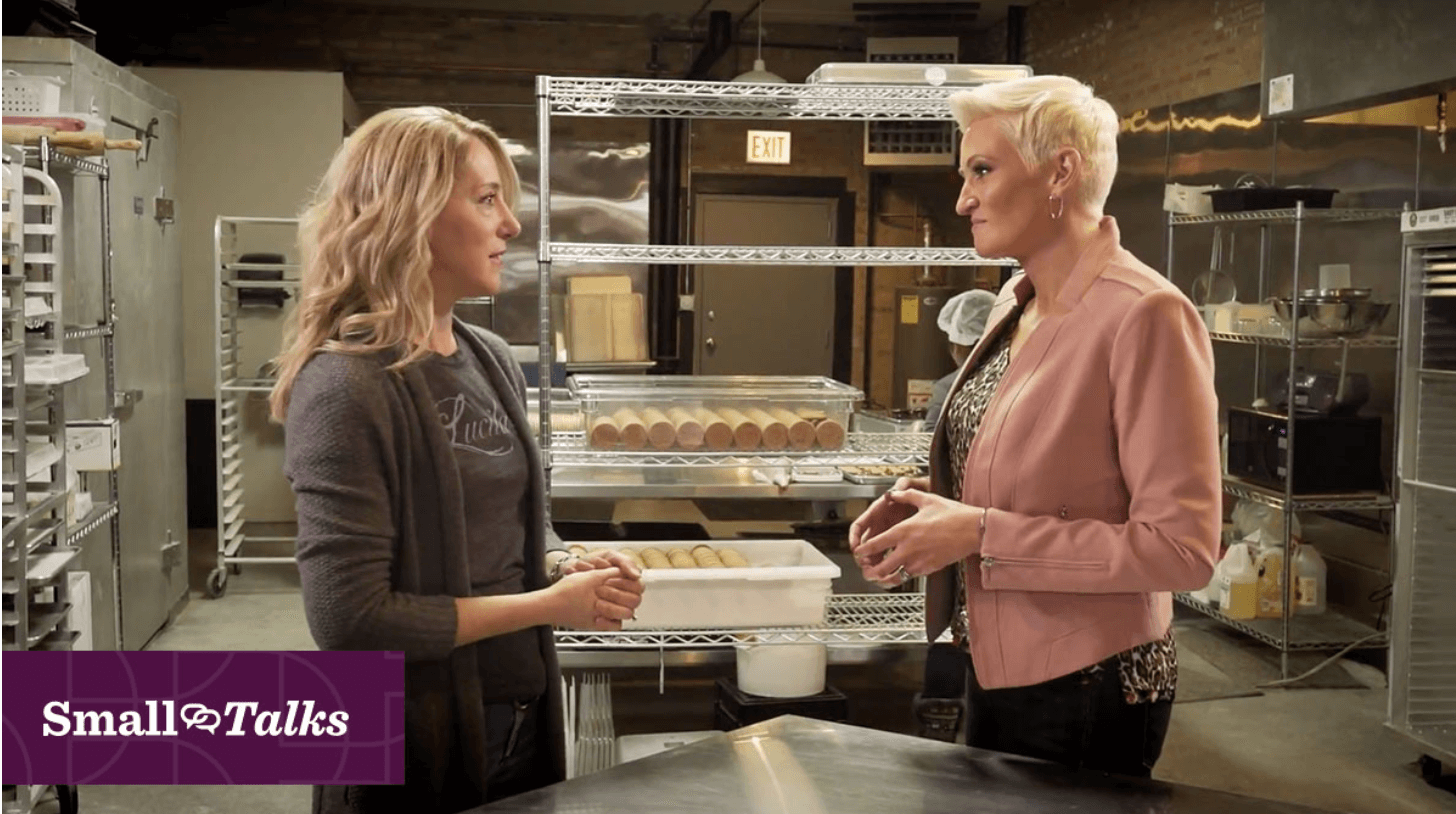Lucila’s Alfajores
Lucila Giagrande grew up in a small town in Argentina, enjoying the desserts that her mother, grandmother and aunts would bake for her. It wasn’t until she moved to Chicago that she realized she could turn her love for Argentinian sweets into a business. She founded Lucila’s Homemade Alfajores. She started small, selling alfajores at a local farmers market, and now her handcrafted confections are sold by national retailers. After finding success selling a product that many people in her target market were unfamiliar with, she has three pieces of advice for business owners who find themselves in a similar situation.
Have a trial period for testing the product. People need to touch, feel or — in Giagrande’s case — taste your product in order to understand it. “I started participating in farmers markets,” Giagrande says. “So basically I was handing out samples. We put the product in front of people one piece at a time.” Not only is this method a great way to expose your target audience to your product, but you can also use these tests to get feedback and discover which aspects of your offerings are resonating with people.
Hustle and tell your story. When you don’t have a marketing department or huge advertising budget, it’s up to you to explain the benefits of your product to your audience. Doing this kind of promotion face-to-face is especially important when you’re working with unfamiliar or new products. Make time to do things like appearances at a farmers market and other community events.
Find the appropriate price point. If you are making something that is handcrafted, understand that there’s a premium that goes with that, but at the same time, you don’t want the price to be so high that it’s a barrier for people. “If you price it too high, then you risk not selling the amount that you need to sell. Price too low, and you don’t make your margins. So you really have to find that balance.”
Watch the full interview here:
Salty Tart
With nine James Beard nominations, Michelle Gayer is among the most critically acclaimed pastry chefs in the Twin Cities. In 2008, Gayer realized her dream of opening her own bakery: Salty Tart. She has since made the move from a 400-square-foot kitchen to a 4,000 square-foot kitchen. She has three pieces of advice for entrepreneurs.
Hire great communicators. The first question Gayer asks during a job interview is, “How would you rate yourself as a communicator?” Business owners need to be able to ask questions, receive feedback and listen.
Prioritize your time and empower your people. Think about where your time is best spent. Gayer is passionate about baking — not managing her business’s Twitter account. So she stays in her wheelhouse. Do what you’re good at and empower your people to do the rest.
Make sure the person fits your company culture. It’s not enough for someone to just want a job at Salty Tart. Gayer encourages potential employees to visit the business and get a feel for the culture of the kitchen. So what’s her recipe for finding the perfect employees? Gayer conducts two interviews and a trial where applicants can work in the kitchen for a day to make sure it’s a fit for the business and for the applicant.
Watch the full interview here:
WSK
In 2007, Minnesota-based chef and author Sameh Wadi founded the acclaimed Saffron Restaurant and Lounge. Always on the hunt for a new challenge, Wadi opened his second restaurant a mere five years later. While Saffron specialized in fine dining, his new venture, World Street Kitchen, is a fast-casual eatery serving up delicious global street food to Minneapolis locals. As a serial entrepreneur, Wadi knows how much work it takes to replicate and expand upon the success of your first business. He has three pieces of advice for anyone who is contemplating opening a second business.
Build on your successes, learn from your mistakes. Each of Wadi’s new ventures has been a bit different from the one that came before. But one thing that doesn’t change is the way the restaurants are run. “We take the same structure — the same bones — and transfer them over,” he says. Wadi also finds it beneficial to reflect on the mistakes he made when first starting out. “When I opened up Saffron, I was 23, had no clue what I was doing, and made a lot of mistakes,” he says. “When we opened World Street Kitchen, we thought about parking, we thought about the neighborhood and the demographic that was in the neighborhood. And are we serving them? Is this what they want? Do we want to be a part of the neighborhood, or are we going to bring in people from outside of the neighborhood?”
Tailor your new brand to new customers. At World Street Kitchen, Wadi has carried forward the way Saffron operates, with attention to quality staff and food. But the branding has changed. Saffron’s audience, for instance, skewed older. They were magazine readers in contrast to the younger, social media-savvy diners of World Street Kitchen. Since the target audience is different, everything from the decor to the way the business is marketed was changed to match.
Keep a consistent brand voice. Customers should be able to recognize your business’s brand everywhere that they come in contact with it. An inconsistent brand voice can confuse and alienate customers. In building a fresh brand for World Street Kitchen, Wadi has made sure that the physical space aligns with the restaurant’s voice.
Watch the full interview here:



